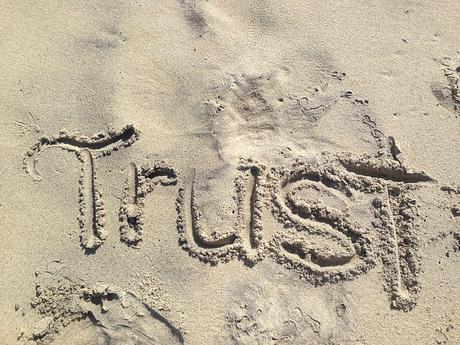Your inner voice, your intuition, your feeling - all can be harnessed in the service of progressing personally and professionally, and in making your company and team members improve performance. Does this sound counter-intuitive? No, it is precisely the opposite; it is counter-analytical. The intuitive mind faces off against the analytical mind - the one that reasons and pores over data - every day. Should, as if often the case, the intuitive mind take a back seat in making decisions? Experience shows otherwise.
As an executive leadership coach, I have come across many clients who have distrusted their instincts, preferring the cool embrace of demonstrable facts. Ross, a top executive at a management consulting firm, was stymied when offered a newer, riskier job at another company. He dutifully drew up a comprehensive list of pros and cons about jumping ship but simply could not come to a decision. Until a friend asked him, "What does your gut tell you?" Ross didn't have to think. He accepted the offered job and went onto thrive in his new environment.
There are times when your "gut" should be listened to.
Especially if it gives you instant affirmation. That is intuition.
Then there's Karen, a hyperperforming executive who was offered not one, but two tempting career options. One was high-profile and prestigious, the other not so much. She felt that the latter might suit her better, but, after hearing the wows and congratulations from colleagues, accepted the prestige position. Within a week she knew she had made a mistake - the corporate culture of her new post was totally at odds with her sense of purpose. Months of popping anti-depressant pills and struggling to get out of bed in the morning finally ended in her resigning and finding a place in a company she felt was a fit.

Do not be impressed with the shiny object.
Stay focused on what you want, after consulting your intuitive mind and your rational mind.
Our intuitive mind is more rapid, more complex and more imbued with emotional intelligence than our conscious mind. We downplay it at our peril. Analytical ability is wonderful at understanding the past; intuitive, at sensing the future - which, in our present-day world of business volatility and change, is an invaluable asset. Does this mean we should charge headlong in obedience to every hunch we harbor? No. We need both our analytical and intuitive minds. My suggestion is that you balance the scales between the lightning-fast, profound, and creative insights that can come only from your intuition and the higher functions of your conscious intelligence.
Recognize when your intuition is speaking to you, and listen.
If, after an exhaustive analysis of a course of action - a company strategy, an investment, a hiring decision - you still feel that something is wrong with the result of your deliberations, then there probably is. We should not dismiss our inner voice out of hand.
Alfred Einstein, an analytical genius, called the intuitive mind "a sacred gift" and the rational mind, "a faithful servant." He went further, writing, "We have created a society that honors the servant and forgotten the gift." Einstein, of all people, plumped for listening to ourselves, not to our external parameters or self-imposed limitations. It is a lesson we would do well to heed.
Listening to our intuition is often thought risky - and indeed it is. When there is no rational backstop to a decision, we enter the unknown. As a serious teenaged athlete, I left my homeland of France in the midst of the competition season to fly to the US. Madness? Caprice? No, I just knew I had to. And the decision changed my life. Exposed to the more free-wheeling American society, I realized that anything is possible, an intuitive-based conclusion that has guided me throughout my life. So taking risks is good - without risk there is no lasting reward and progress. And if the risk does not pan out and results in failure, that too can be good.
We learn from setbacks, our store of experience, of pain and pleasure, strengthening our intuitive muscle.
Another proponent of the intuitive was Napoleon, admittedly a somewhat odd go-to source for businesswomen in search of insights. Napoleon famously asked a simple question of any officer before promoting him: "Are you lucky?" If the fellow said yes, he got his new rank - for Napoleon recognized that "luck" on the battlefield often came from the ability to make lightning decisions, to sense the unpredictable strategy of an adversary, to follow your gut. Of course the great French general did not wing his approach to battle - he made painstaking preparations. But he could ditch and shift plans in a flash, taking incomplete information in the chaos of the moment and arriving, intuitively, at a winning outcome.

Now we are neither on the battlefield nor in a physics laboratory, but our business environments are nonetheless fluid, capable of presenting us with unexpected challenges. Navigating these surprises requires nerve and the use of the yin and yang of the intuitive and the rational. Scientific experiments have confirmed that while conscious deliberation produces better outcomes for simple choices, complex decisions involving multiple factors are better served by subconscious deliberation while one's attention is directed elsewhere - taking a mental step back and letting the intuitive mind do the heavy lifting.
In other words, judge if the choice before you requires the counter-intuitive or the counter-analytical.
This guest post was authored by Hortense le Gentil

Hortense le Gentil is an Executive Leadership Coach and Marshall Goldsmith #MG100 Certified Marshall Goldsmith Stakeholder Centered Coaching. She partners with leaders to analyze problems and determine best possible solutions. Le Gentil's coaching expertise includes cultural and self-awareness, entrepreneurship, leadership presence, leadership style and organizational dynamics.
In 2007, le Gentil founded and became CEO of HLG Management. She is now a Thinkers50 nominee and Founder and CEO of JAY Consulting. Jay Consulting is committed to coaching senior, including C-Suite, executives and entrepreneurs toward positive leadership behaviors.

